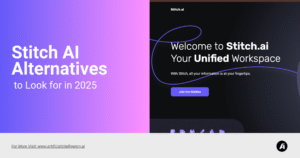AI is booming. From chatbots that write essays to image generators creating art, the tech world is racing ahead with new AI breakthroughs. But with big players like OpenAI, Google, and Nvidia leading the charge, some are asking: Is AI heading toward a monopoly? And should the government step in to break things up?
Jennifer Huddleston, a senior fellow in technology policy at the Cato Institute, says not so fast. She argues that AI is still in its early days, and hitting the brakes with strict antitrust rules could actually hurt innovation instead of helping it.
AI Is Just Getting Started
AI might seem like it’s dominated by a few big names, but remember when Yahoo ruled the internet? Or when MySpace was the social network? The tech industry moves fast. Today’s leaders could be tomorrow’s history.
Right now, AI is still evolving. Companies are experimenting, startups are launching, and no one really knows what the AI landscape will look like in five years. That’s why Huddleston warns against jumping to conclusions—early success doesn’t automatically mean a monopoly.
AI Is More Than Just One Product
When people hear “AI,” they often think of one big system, but in reality, AI is an entire ecosystem with multiple moving parts. No single company controls everything—different players dominate different areas, and competition is fierce.
- Hardware: Nvidia dominates AI chips, but competitors like AMD and Intel are stepping up. As AI demand skyrockets, new players and innovations in semiconductor technology are constantly emerging.
- Model Development: OpenAI, Google DeepMind, and Meta are competing to build the most powerful AI models. Each company has its own approach, from massive language models to specialized AI systems designed for unique tasks.
- Application & Deployment: Thousands of startups and businesses are integrating AI into real-world products. Whether it’s AI-powered customer service, medical diagnostics, or creative tools, businesses are racing to turn AI into practical solutions.
Even if a company leads in one area, that doesn’t mean they control AI as a whole. It’s like saying Apple owns the entire tech world just because they make iPhones—there’s a lot more going on behind the scenarios.
Would Antitrust Laws Slow AI Down?
Some argue that AI companies are getting too big too fast and should be regulated before they dominate the industry. But Huddleston points out that forcing companies to fight legal battles instead of focusing on R&D could actually slow down progress.
And while the U.S. is debating AI regulations, other countries—especially China—are aggressively investing in AI development. If AI companies have to divert resources to legal defense instead of innovation, could that put the U.S. at a disadvantage?
The Bottom Line
Instead of rushing to regulate AI just because some companies are growing quickly, Huddleston suggests we let innovation play out. The AI market is still young, competition is fierce, and history shows that today’s leaders don’t always stay on top forever.
What do you think—should AI companies be left alone to innovate, or do we need rules in place to keep things fair?
Author
-
I’m an AI SaaS expert passionate about simplifying complex tech. I explore and review AI-powered products to help you make smarter decisions.
View all posts



